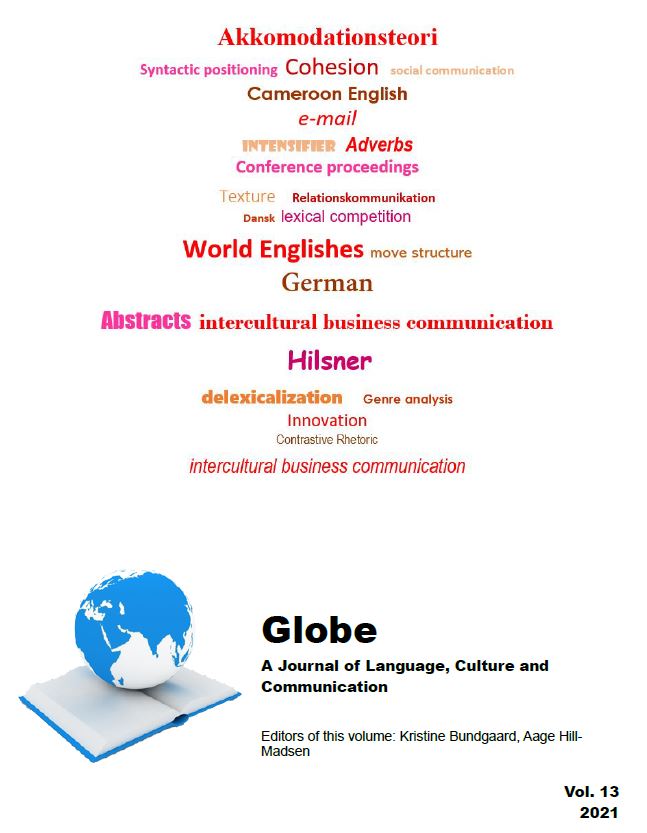Nativization of English among L2 learners
Development in the grammar of adverbs in Cameroon English
DOI:
https://doi.org/10.54337/ojs.globe.v13i.7046Resumen
In the discussion of Postcolonial Englishes, Cameroon English is a well-known variety, yet many of its features have not been fully described. One of these features is adverbs and their syntactic positioning. Hence, the present paper aims to show that the input-oriented feature specifications of adverbs and their syntactic positioning have undergone certain innovation processes in Cameroon English. These innovations include placement of adverbials to permit the SVAO information structure, employment of adjectives ending in -ly as adverbs, formation of adverbs from nouns by adding the suffix –ly, substitution of adjectives for adverbs, placement of adverbials after the verb in verb + long object clause, placement of an adverb modifying a participle after the word it modifies, and placement of adverbials of time between the subject and verb. The paper argues that the motivation behind novel adverbs as well as novel syntactic positioning of adverbs stems from the co-existence of English and many other languages in the linguistic ecology of Cameroon. The innovations can be codified into a variety-specific grammar of Cameroon English in its construction and semiotization of Cameroonians’ sense of socio-cultural and linguistic identity.
Descargas
Publicado
Número
Sección
Licencia
Articles published in Globe: A Journal of Language, Culture and Communication are following the license Creative Commons Attribution-NonCommercial-NoDerivs 3.0 Unported (CC BY-NC-ND 3.0). Authors retain copyright and grant the journal right of first publication with the work simultaneously licensed under a Creative Commons Attribution License: Attribution - NonCommercial - NoDerivs (by-nc-nd). Further information about Creative Commons


